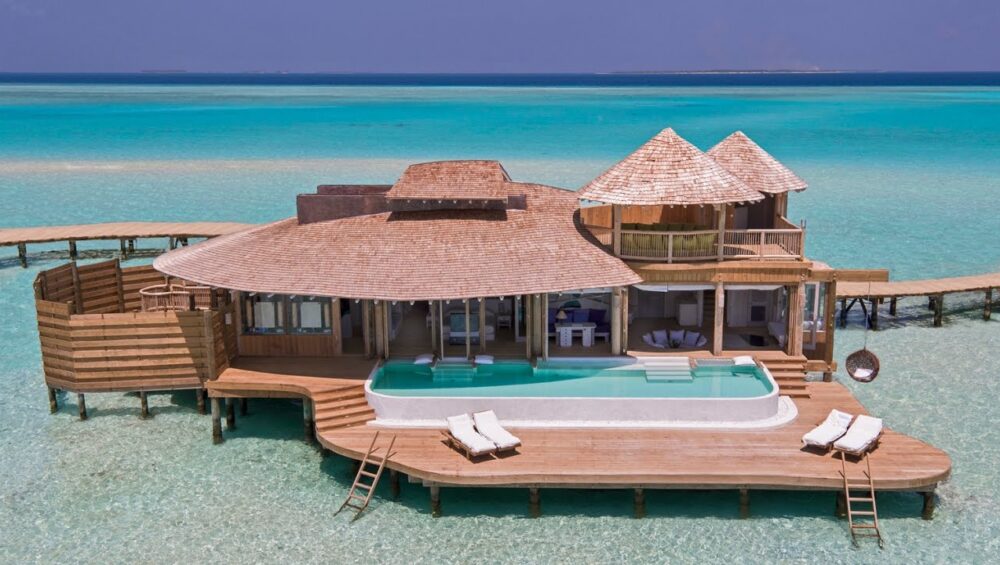The Maldives is known for its stunning beauty, with over 1,000 coral islands scattered across the Indian Ocean, offering an unparalleled paradise-like ambiance. This exclusivity comes with a high price tag for several reasons: –
Remote Location and Import Costs: – The Maldives is a remote island nation, which means almost everything, from food to construction materials, needs to be imported. Transportation costs are high, and this expense is passed on to the consumer, contributing to the overall high costs in the country.
Luxury Tourism Model: – The Maldives has positioned itself as a luxury tourist destination. Resorts are often located on private islands, offering exclusive experiences that include overwater bungalows, private beaches, and personalized services. The infrastructure and services are designed to meet the expectations of high-end travelers, which means investing in quality, aesthetics, and privacy. This luxury model naturally results in higher prices.
Environmental Protection: – The Maldives is environmentally sensitive and vulnerable to the impacts of climate change, especially sea-level rise. Sustainable practices and environmental protection measures are necessary and sometimes costly. Investments in sustainable infrastructure, such as water treatment plants and renewable energy sources, add to the costs of running resorts.
Limited Space: – The unique geography of the Maldives means there is limited space for development. The scarcity of land, combined with the desire to preserve the natural beauty and environment, limits the number of resorts and accommodations available, which can drive up prices due to high demand and limited supply.
Exclusivity and Privacy: – Many visitors to the Maldives are seeking an exclusive and private holiday experience. Resorts cater to this demand by offering secluded accommodations and private amenities, which means fewer guests are accommodated, and the cost per visitor is higher.
High Operational Costs: – Running a resort in a remote location like the Maldives is expensive. From generating electricity (often with diesel generators) to desalinating water and managing waste, the operational costs are significant. These costs are factored into the price of accommodations, food, and services offered to guests.
Taxes and Levies: – The Maldivian government imposes taxes and levies on tourist services, including a Goods and Services Tax (GST) on hotel stays and services, as well as a green tax aimed at environmental conservation efforts. These taxes contribute to the overall costs for tourists.
While the Maldives is expensive, its unique offerings of crystal-clear waters, exceptional marine life, luxury accommodations, and a sense of exclusivity make it a sought-after destination for those willing to pay a premium for an unforgettable experience.





